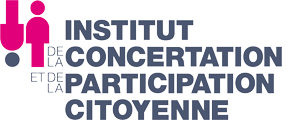Public authorities from all levels of government increasingly turn to Citizens’ Assemblies, Juries, Panels and other representative deliberative processes to tackle complex policy problems ranging from climate change to infrastructure investment decisions. They convene groups of people representing a wide cross-section of society for at least one full day – and often much longer – to learn, deliberate, and develop collective recommendations that consider the complexities and compromises required for solving multifaceted public issues. This « deliberative wave » has been building since the 1980s, gaining momentum since around 2010. This report has gathered close to 300 representative deliberative practices to explore trends in such processes, identify different models, and analyse the trade-offs among different design choices as well as the benefits and limits of public deliberation. It includes Good Practice Principles for Deliberative Processes for Public Decision Making, based on comparative empirical evidence gathered by the OECD and in collaboration with leading practitioners from government, civil society, and academics. Finally, the report explores the reasons and routes for embedding deliberative activities into public institutions to give citizens a more permanent and meaningful role in shaping the policies affecting their lives.
